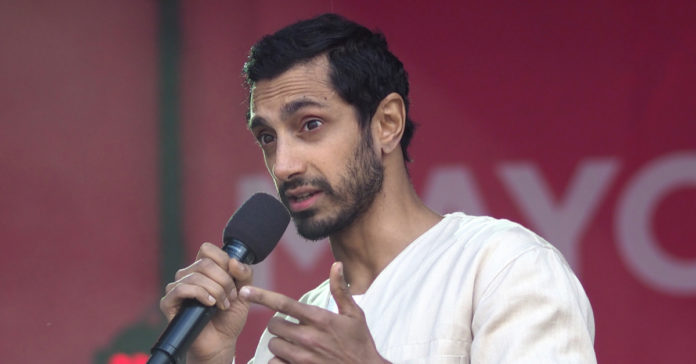A new charity aimed at challenging Muslim stereotypes in the film industry has been launched.
UK Muslim Film will advise the entertainment industry on how to better represent Muslims on screen, support projects from emerging storytellers, and be a port of call for authentic Muslim representation.
The launch event took place at the British Film Institute today and featured film and TV executives.
Muslims have long complained about their portrayal on screen which they say tends to feature them as terrorists, fundamentalists or oppressed women.
Recent major productions to have portrayed Muslims in a negative light include the BBC series Bodyguard, where the show’s plot hinges on the Muslim character lying about her sympathies until the very end.
Netflix’s Bard of Blood also features Muslims in the default role of terrorists. And Amazon’s fantastical superhero show The Boys presents Muslims as a threat to Western values.
In 2017 the actor Riz Ahmed gave a speech in the House of Commons on diversity on screen. His “Riz Test” outlines five criteria to measure how Muslims are portrayed on film and TV.
Subscribe to our newsletter and stay updated on the latest news and updates from around the Muslim world!

If the film/show stars at least one character who is identifiably Muslim (by ethnicity, language or clothing) – is the character:
- Talking about, the victim of, or the perpetrator of terrorism?
- Presented as irrationally angry?
- Presented as superstitious, culturally backwards or anti-modern?
- Presented as a threat to a Western way of life?
- If the character is male, is he presented as misogynistic? Or if female, is she presented as oppressed by her male counterparts?
Sajid Varda, founder and CEO of UK Muslim Film, was the first Muslim character to appear on BBC One’s Byker Grove covering a storyline around racism and was galvanised to change the industry after an experience making the film The Chop.
He said: ”UK Muslim Film was created as a response to my many years of working within the industry both in front of and behind the camera and realising that Muslims need to be represented at all levels, in writer’s rooms and as commissioners.
“The lack of representation also impacts the types of stories that are told leading to more content based on negative stereotypes which impacts Muslims adversely on a daily basis.
“There are many talented Muslim creatives from the Muslim community and from other underrepresented groups that find it hard to get a foothold into the industry. We want to change this. Our aim is to encourage greater understanding and engagement between the Muslim and wider community, finding what connects us, and to advise the industry on better authenticity in productions.
“We would like to thank the BFI for being at the forefront of bringing greater change within the industry and to our friends at the Riz Test for presenting their ground-breaking analysis on Muslim portrayals on screen over the last 120 years.
“With the box office successes of Black Panther, Crazy Rich Asians and with Netflix’s Bridgerton watched by over 82 million households since Christmas, audiences are demanding diverse stories. It makes commercial sense to invest in representative characters.”
The BFI’s Head of Inclusion, Jen Smith, added: “I am delighted to be supporting UK Muslim Film and for the BFI to be hosting this event today. What we do in the screen industry matters. Imagery is persuasive. We are committed to supporting organisations that are helping to diversify what we see on screen and who gets to tell their stories.
“By expanding our industry to be more inclusive to Muslims and exploring intersectionality within Muslim communities we get to tap into more audience growth and global markets as well as a richness of creativity.”


















